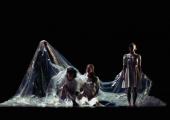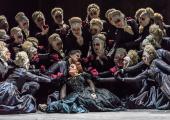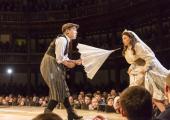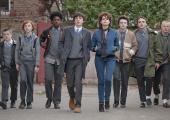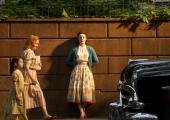Ireland with Ardal O'Hanlon, More4

Comic's travelogue keeps it light
There has been an abundance of celebrity travelogues of late and with each one comes a new USP. Speaking just of Ireland, train enthusiast Michael Portillo nabbed the Victorian Bradshaw's rail guides, while the adventurous Christine Bleakley explored its wild side; and now Ardal O'Hanlon uses another set of Victorian guidebooks to take us on a three-part journey through his homeland.

